SUMMARY OF THE EVENT: Benefits and challenges of participation in co-funded partnerships with a thematic focus on co-funded partnerships under Cluster 6: Food, Bioeconomy, Natural Resources, Agriculture and Environment
The National Research, Development and Innovation Office of Hungary (NRDIO) together with the Czech Liaison Office for Education & Research (CZELO), the Polish Science Contact Agency of the Polish Academy of Sciences (PolSCA) and the Slovak Liaison Office for Research and Development (SLORD) organised a conference about the benefits and challenges of co-funded partnerships on 13 June 2022 at the premises of the Hungarian Permanent Representation. The well-attended event was also available for online participants.

After the welcoming remarks of the Deputy Permanent Representative, Ambassador Extraordinary and Plenipotentiary of Hungary to the EU, His Excellency Gábor Baranyai, the key-note presentation of Maria Leek from the European Commission not only focused on the recently published biannual monitoring report of partnerships but also on the future of the strategic planning process. The policy panel has addressed topics like the added value of participation in partnerships, the difficulties of prioritization, the necessity of synergies, commitment and mirror groups for partnerships on the national level. Ms. Leek reported about the launch of Mutual Learning Exercises in order to help sharing good practices and to find joint solutions for such challenges like the exit strategies of partnerships. The Polish perspective was presented in this panel by Ewa Kocińska-Lange, Director of the Brussels Office of the National Centre for Research and Development – Business & Science Poland.
As a second key-note, Margareta Olson (European Commission) has presented in the scientific panel the strategic research and innovation agenda (SRIA) setting process. The four scientists from the V4 countries have not only presented their scientific achievements linked to partnerships but also highlighted the importance of support staff when understanding and applying for partnership-related calls, the necessity of personal commitment, coordination skills and the need for scientists, who are able and ready to deal with policy documents. Poland was here represented by Joanna Przedrzymirska-Ziółkowska, Deputy Director for Organization and Development from the Institute of Oceanology of the Polish Academy of Sciences in Sopot.
In his final remarks, Barna Kovács, Secretary General of the BIOEAST initiative also highlighted the need for support structures and the possible role of BIOEAST working groups in the preparation of partnership SRIAs and national participation.
Link to the video recording of the conference.
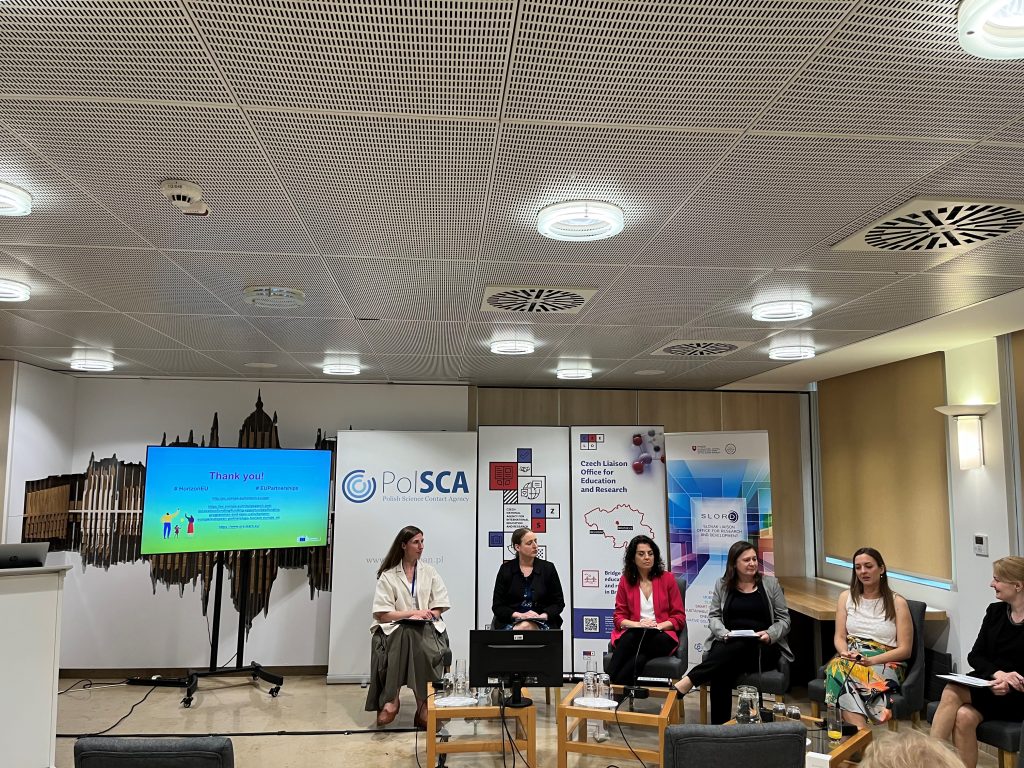
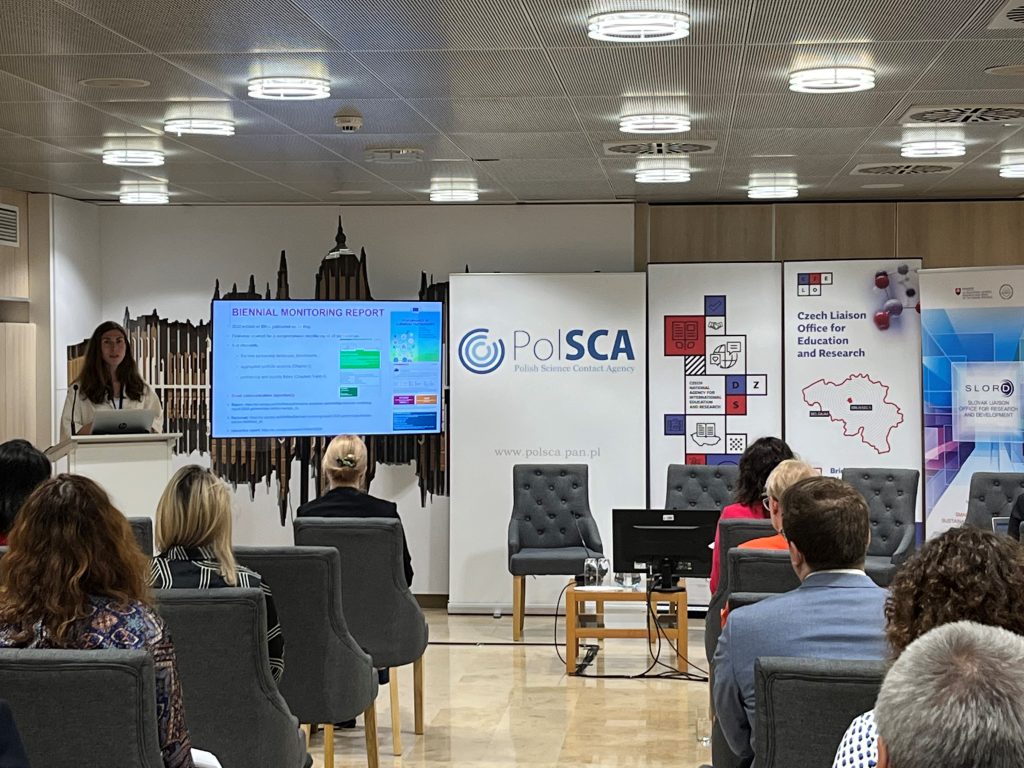
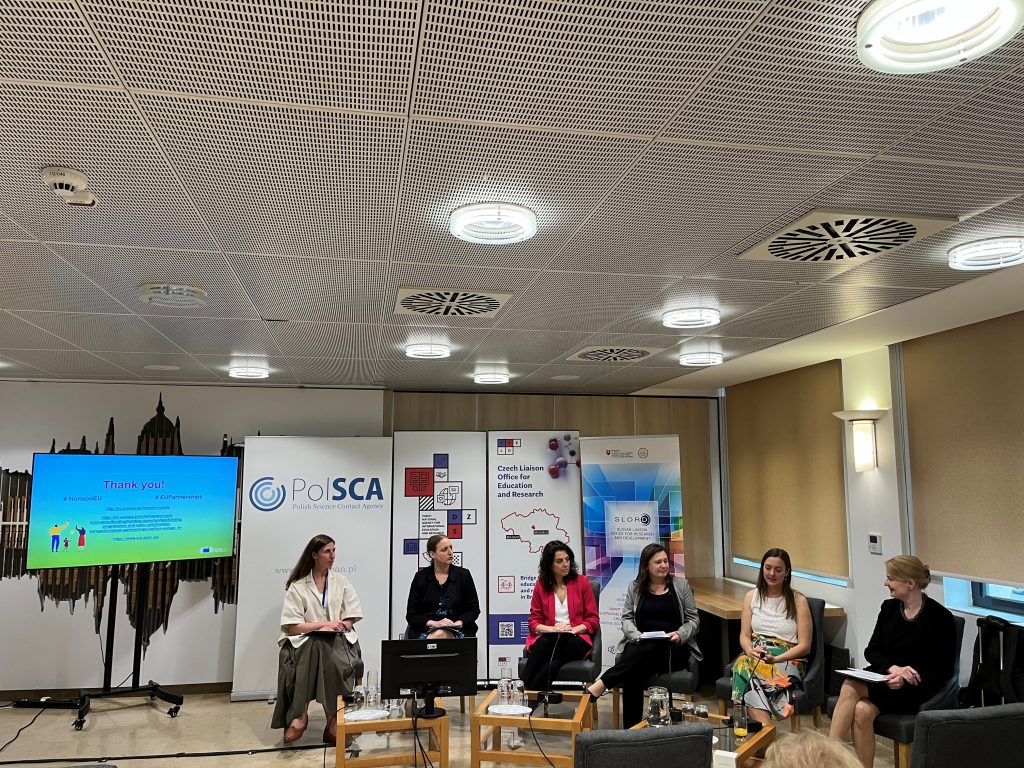
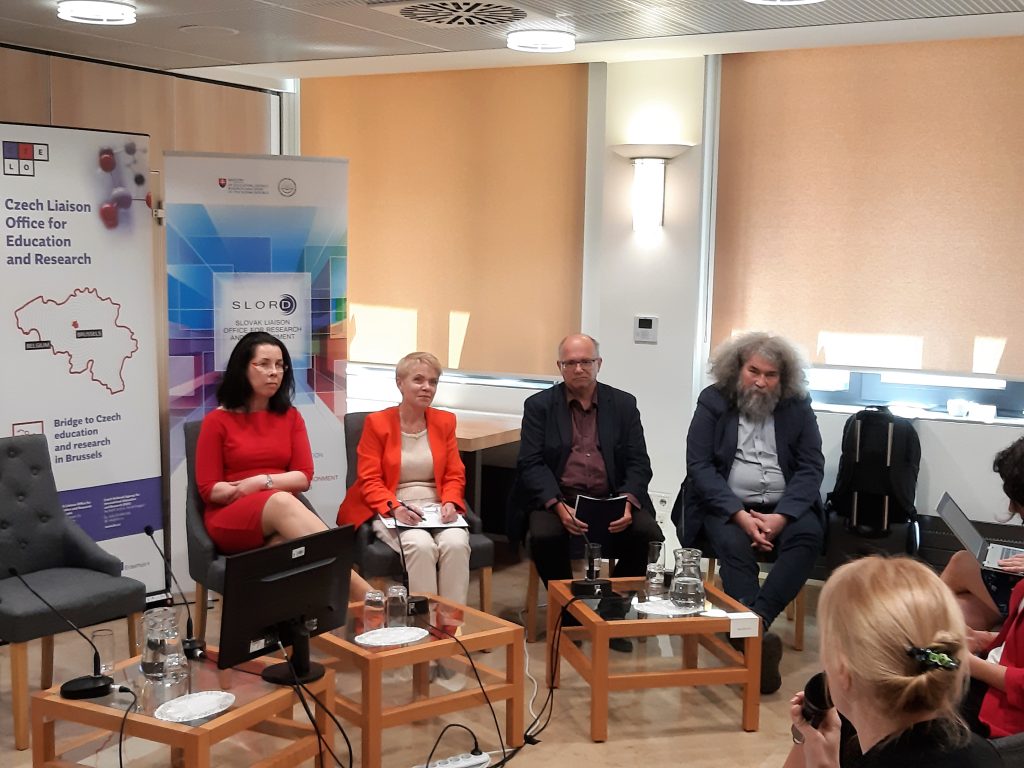
Networking and fundraising event “Solidarity with Ukraine” on June 14th in Brussels
Polish Science Contact Agency PolSCA together with the NCBR Office in Brussels | Business & Science Poland and the Polish Institute in Brussels would like to invite you to the networking and fundraising event “Solidarity with Ukraine”, which will be held on Tuesday, June 14 at 17h45 in the atrium of NCBR office in Brussels, at Rue Belliard 40.
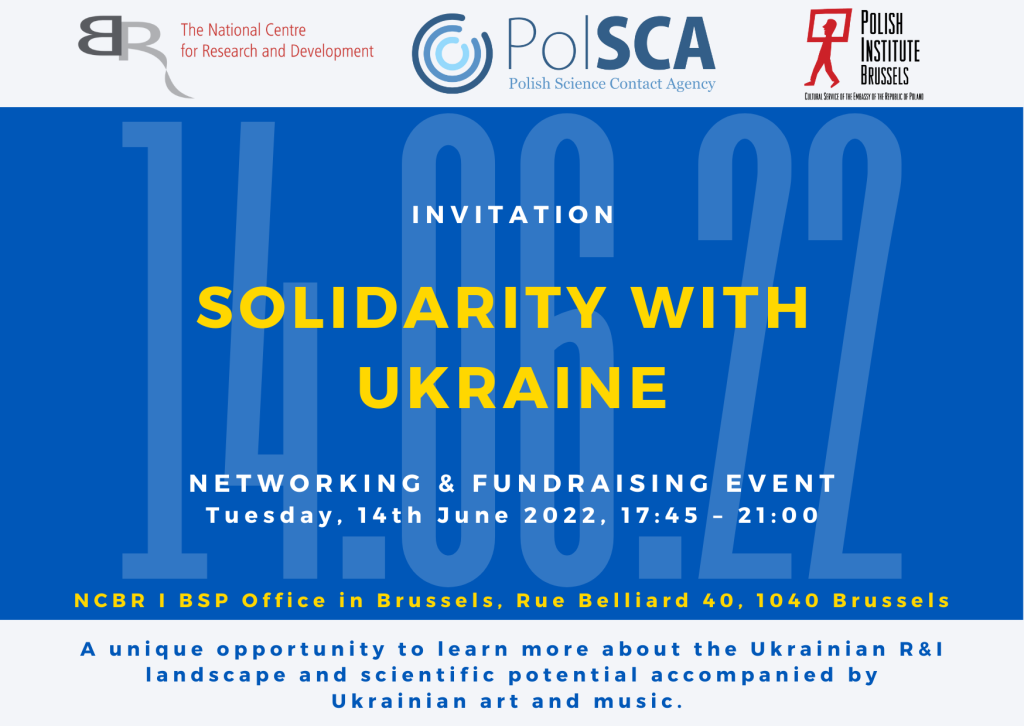
The purpose of this event is to present the Ukrainian R&I landscape as well as the potential of Ukrainian scientists to the international community in Brussels and to facilitate networking among experts in the field of research and innovation. It is also a unique opportunity to talk about the cultural heritage, to enjoy Ukrainian art and music and most of all, to raise funds for the current needs of Ukrainian society.
There will be a chance to directly support the activities carried out by the Help Centre Belgium, an NGO that since the beginning of the conflict provides material support for the Ukraine or to donate funds to:
- the recently established Polish-Ukrainian Cooperation Program, launched by the Foundation for Polish Science, which will finance projects in the social sciences and humanities, conducted jointly by scientists from Ukraine and Poland
- and to the Polish Support Center for Culture in Ukraine, established by the National Heritage Institute, to coordinate both domestic and foreign initiatives to save the cultural heritage in Ukraine.
Invited guests only.
Falling Walls Lab Warsaw – great minds, 3 minutes, 1 day! Sign up until June 30.
Three minutes is all it takes! Falling Walls Lab is a world-class pitch competition, networking forum, and steppingstone that brings together a diverse and interdisciplinary pool of students and early-career professionals by providing a stage for breakthrough ideas both globally and locally. Join the global platform for students and early-career professionals. Submit your application by June 30. Polish Science Contact Agency (PolSCA) in Brussels is among the partners of the event.
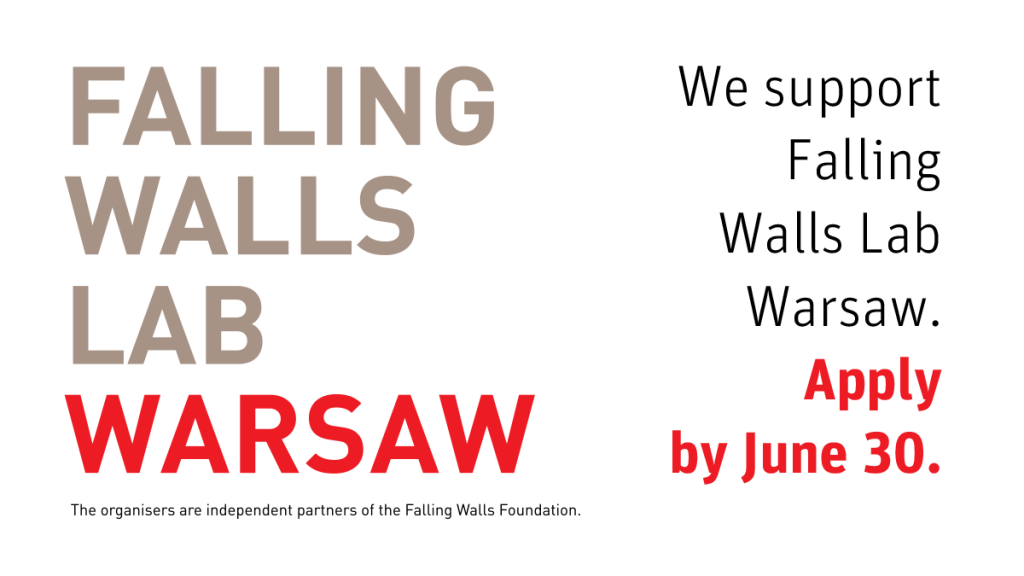
Every year in November, students, PhD students, scientists, start-up founders and innovators from around the world talk about the ideas what can demolish walls. Previously, national qualifying rounds are organized in over 70 countries. The first conference was held on the 20th anniversary of the fall of the Berlin Wall in 2009. This year, the event will be held for the fourteenth time. Why is it worth to apply? Falling Walls is the unique global hub connecting science, business, and society.
- Win a trip to Berlin (travel and accommodation included)
- Participate in the global Falling Walls Lab Finale (November 7, 2022) in Berlin
- Receive a ticket to the prestigious Falling Walls Science Summit (November 7-9, 2022), where leaders in science, industry, and policymaking meet and discuss which walls will be the next to fall in science and society
- Take part in an exclusive extended program (the extended program events in past years have included a Springer Nature event on science publishing, an ‘Insights into German Research’ information session and science excursion, a networking dinner, etc.)
- Gain access to inspiring braindates with other Falling Walls Science Summit participants
- Increase your innovative project’s global reach and visibility with a pitch video in the Falling Walls content library
- Join the global Falling Walls community platform Falling Walls Connect
Falling Walls Lab Warsaw will take place on September 15, 2022, at the Warsaw University of Technology. It is organised by pro science, the largest specialist PR agency in Poland dedicated to working with the science, R&D, and education communities. It operates in the space where science, business and society meet because our aim is for these sectors to interconnect. The company’s goal is to bring value to the academic world – better communication that develops science, and to provide companies with inventive thinking and original solutions.
To take part in Falling Walls Lab Warsaw, go to the website. Submit your application via the red ‘Apply’ button by June 30, 2022, at 23:59. Also, make sure to send an email to lab@proscience.pl. In July, pro science will invite you to a free online training in public speaking. The training will be held in July or August.
It is also possible to apply for the competition later – until August 15, 2022. However, participation in the training is reserved for those who do so on the first date.
The initiator of the creation of the network is the Falling Walls Foundation, a non-profit organization based in Berlin. It is supported by the German Federal Ministry of Education and Research, the Robert Bosch Foundation, the Helmholtz Association, the Berlin Senate, as well as numerous recognized academic institutions, foundations, companies, and NGOs.
Effective communication, dissemination, and exploitation – successful valorisation of knowledge and research results in Horizon Europe
Communication, dissemination, and exploitation activities are an integral part of Horizon Europe projects to maximise the impacts of the EU research & innovation funding, deriving from the Implementation Strategy for Horizon Europe and principles of the European Research Area (ERA) that aims to create a single, borderless market for research, innovation and technology across the EU.
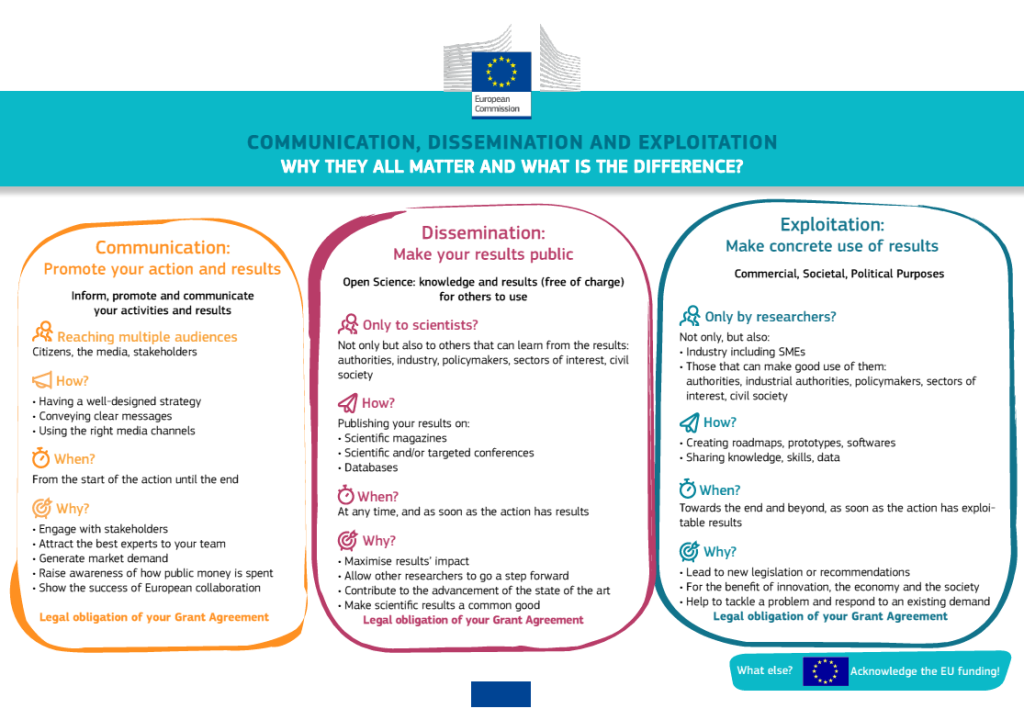
Opportunities for Social Sciences and Humanities – Horizon Europe (Cluster 2 & SSH integration) and beyond
As the European Union is currently facing many complex challenges, the role of social sciences and humanities (SSH) is crucial to understand rapid and structural transformations of the European societies and to prepare evidence-based policy responses.
To foster the role of SSH, the EU issued several programs and grant schemes supporting researchers, innovators and civil organizations engaged in social sciences and humanities, including a special place for SSH in Horizon Europe, the biggest research and innovation program of the EU.

Gender Equality Plan – How to develop and implement a Gender Equality Plan in a research institution?
The European Union undertakes a number of activities to promote gender equality in the research, innovation and higher education (R&I, HE) sectors. An example of this is the strengthening of the ‘gender equality’ aspects in the EU framework program – Horizon Europe, which is the largest instrument for financing research and innovation in Europe.
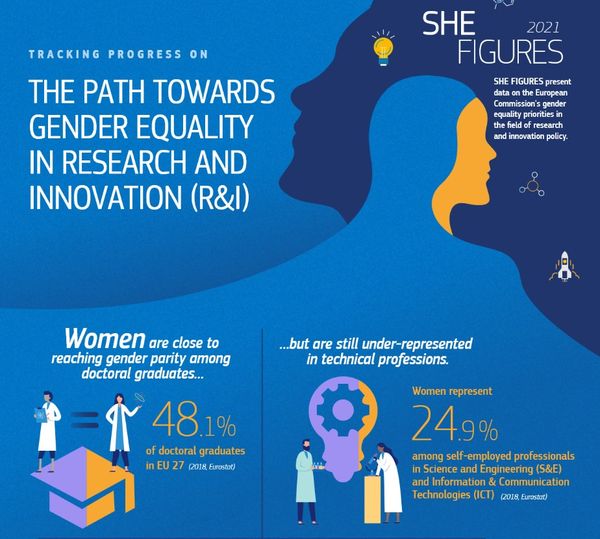
PolSCA Office among initiators of joint statement of support for the academic and research community of Ukraine
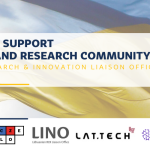
The Polish Science Contact Agency (PolSCA) of the Polish Academy of Sciences is among initiators and the first signatories of joint statement of support for the academic and research community of Ukraine by Brussels-based research & innovation liaison offices. The statement is being brought forward by R&I contact offices, who are close to Ukraine geographically and who share with it the dark pages of violent past of the 20th century.
(wiecej…)The international “Stick to science” campaign with the support of the Polish Academy of Sciences and the Polish Science Contact Agency PolSCA !
Representatives of the European research community initiated the Stick do Science campaign addressed to the governments of Great Britain, Switzerland and the European Union to highlight the need for scientific cooperation independent of political divisions and to enable the participation of Great Britain and Switzerland in the Horizon Europe program.

SUMMARY: The Information event on hydrogen with and for Visegrad four contries. Searching for syngergies.
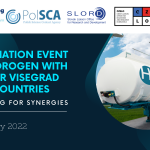
The information event on hydrogen with and for Visegrad Four countries was organized by the Brussels based liaison offices of the V4 countries the National Research Development and Innovation Office of Hungary (NRDIO), the Czech Liaison Office for Education and Research (CZELO), the Polish Science Contact Agency of the Polish Academy of Sciences (PolSCA) and the Slovak Liaison Office for Research and Development (SLORD) on 8 February 2022. The online event was attended by almost 200 participants.
(wiecej…)EU Missions – How to solve major societal challenges?
The most pressing challenges that we face nowadays need coordinated, transnational efforts to be identified, tackled, and solved. Hence, the engagement of stakeholders at all levels – researchers, entrepreneurs, citizens, and policy makers – is crucial to achieve the synergy effect necessary to invent and implement the tailored-made solutions.
The European Commission has identified five societal challenges that need to be addressed – adapting to climate change, fighting cancer, living in greener cities, protecting the ocean, seas, and waters, and ensuring healthy soil and food – and has prepared a cross sectoral actions (within the framework of Horizon Europe) to overcome them – EU Missions.

Next Page »« Previous Page


